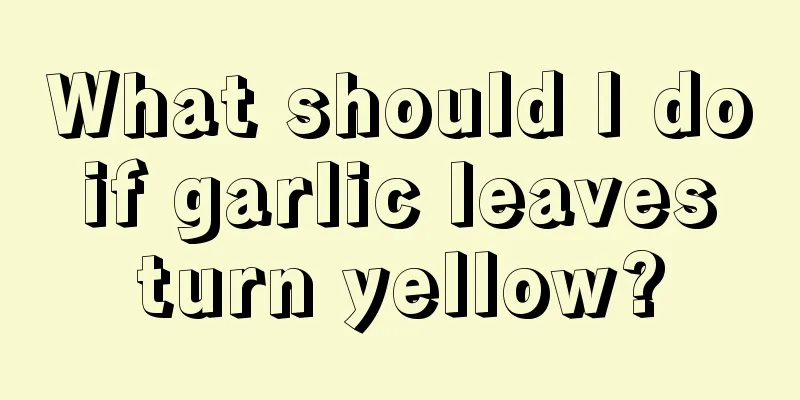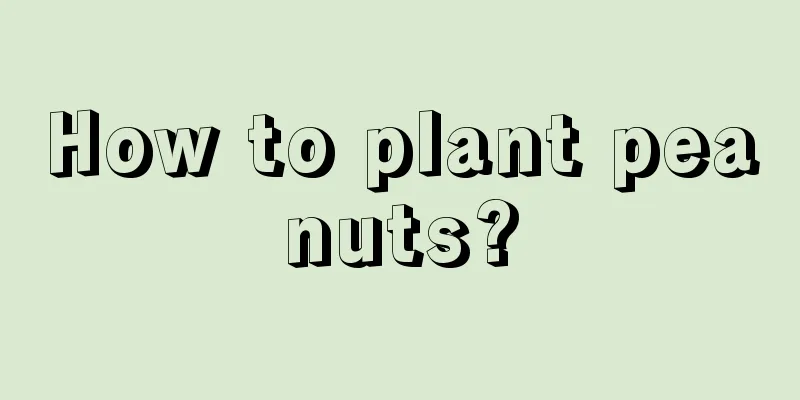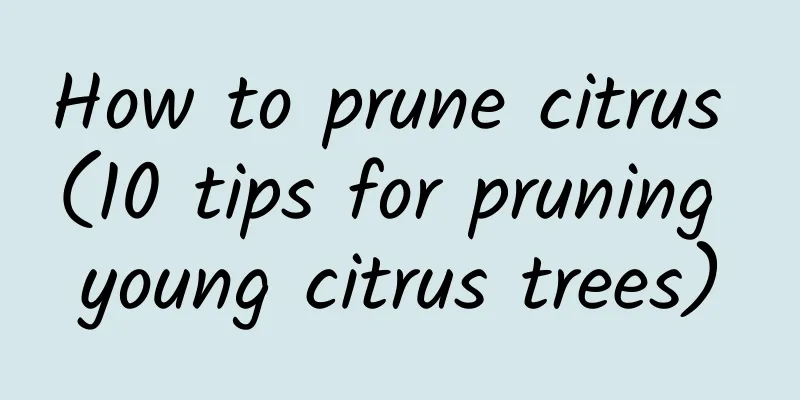What should I do if garlic leaves turn yellow?

1. Loosen the soilReason: If the soil for growing garlic is too compacted, it will be difficult for air permeability and drainage, and will hinder the breathing of the roots. In addition, soil compaction will prevent water and fertilizer from penetrating into the soil well, and the roots will not be able to absorb nutrients in time. If nutrients are not supplied in time, its leaves will begin to turn yellow slowly. Measures: It is necessary to turn over and loosen the soil in time to increase the softness, air permeability and drainage of the soil so that water and nutrients can infiltrate in time and be absorbed by the roots. 2.Apply appropriate amount of topdressingReason: If garlic lacks nitrogen fertilizer during growth, the old leaves will turn yellow. If there is a lack of potassium fertilizer, its branches and leaves will become dry. If there is a lack of calcium, some necrotic spots will appear on the leaves, the heart leaves will turn yellow, and in severe cases the leaf tips will die. Measures: Observe the growth of garlic and apply fertilizer according to the actual situation, but not too much, especially nitrogen fertilizer. 3. Alleviate fertilizer damageReason: When too much fertilizer is applied, it is easy to burn the roots of garlic, affecting its ability to absorb nutrients and causing the outer leaves to turn yellow. Measures: Water the soil twice with heavy water during consecutive sunny days to absorb the heat released by the fertilizer in the soil and dilute its fertility. In addition, you can also spray foliar fertilizer to supplement the nutrient deficiency caused by root burns in garlic. You can also apply some functional fertilizers that promote rooting to help the root system sprout new roots quickly. 4. Prevent and control pests and diseasesCause: Diseases such as leaf blight, garlic gray mold and garlic maggots can also cause garlic leaves to turn yellow. Measures: You can spray carbendazim to prevent and control leaf blight. Garlic gray mold can be treated with drugs such as cypermethrin and carbendazim. For garlic maggots, prevention and control should be more timely. You can use 600 times solution of 90% dichlorodiphenyltrichloroethane for root irrigation treatment, and water once every ten to fifteen days. |
Recommend
What should I do if the leaves of purple bamboo turn yellow? Finding the cause is crucial!
Why do plant leaves turn yellow? There are severa...
Does Gardenia shed its leaves in winter? Gardenia pictures
1.Does Gardenia shed its leaves in winter? Garden...
How many times can rapeseed be planted in a year?
Rapeseed is an important oil crop widely grown ar...
Do tomatoes need pruning? When is the best time to prune?
There are many ways to grow tomatoes, among which...
How many times does Amaryllis bloom in a year?
Open times How many times a year it blooms depend...
How does ginseng fig become aerial root fig?
Wrapping This is a relatively simple method. Wrap...
My sister has been growing flowers for 20 years and the leaves never turn yellow. I finally discovered her little secret!
Jasmine yellow leaves Southern flowers such as ja...
Pepper sowing time and method
Pepper is an annual or perennial plant, and the c...
The efficacy and function of Eucommia ulmoides
1. Anti-aging Eucommia ulmoides can accelerate th...
How to water the hanging baby's breath? How often should I water it?
Overview of watering hanging gypsophila Under nor...
Cynomorium songaricum's growing environment and local conditions
Cynomorium songaricum growth environment and cond...
How many years does it take for Castanopsis tung oil to bear fruit?
Castanopsis tung, also known as water winter melo...
What is the vegetable
What is the vegetable Qiao Tou generally refers t...
Why doesn't the cactus bloom?
1. Reasonable watering 1. Reason: Water is necess...
How to grow daffodils
1. Breeding points 1. Choose soil: Daffodils can ...









